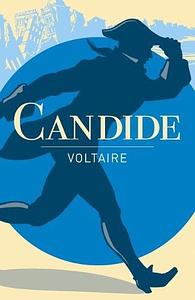You need to sign in or sign up before continuing.
Take a photo of a barcode or cover
funny
fast-paced
Plot or Character Driven:
Plot
Strong character development:
No
Loveable characters:
No
Diverse cast of characters:
No
Flaws of characters a main focus:
Yes
Moderate: Racism, Antisemitism
I know it sounds horribly pretentious, but this is better in the original French. Wicked humor.
I know it's classic literature, but I think it's awful!
It's just me, I guess. :-)
It's just me, I guess. :-)
adventurous
funny
lighthearted
fast-paced
Plot or Character Driven:
A mix
Strong character development:
Complicated
Flaws of characters a main focus:
Yes
funny
reflective
fast-paced
adventurous
funny
informative
reflective
fast-paced
Plot or Character Driven:
Character
Strong character development:
Yes
Loveable characters:
Yes
Diverse cast of characters:
Yes
Flaws of characters a main focus:
Yes
Moderate: Rape
adventurous
funny
reflective
fast-paced
Plot or Character Driven:
A mix
Strong character development:
No
Loveable characters:
Complicated
Diverse cast of characters:
Complicated
Flaws of characters a main focus:
Yes
voltaire oli veitikka ja hassuttelija, sanoma yllättävän saavutettava mut kerronnaltaan esim. joidenkin sanavalintojen suhteen ei oo taaskaan kestäny oikein aikaa #1700-luku
luin kirjallisuushistoriaa varten
luin kirjallisuushistoriaa varten
Read my full review here:
https://tessasworldofthings.blogspot.de/2015/10/candide-by-voltaire.html
Candide is the illegitimate son of a German baron's sister and grew up in his palace. His teacher, the philosopher Pangloss, raised Candide to be an incurable optimist, who believes that everything in the world is meant to be and therefore perfect. When he was a little older, Candide fell in love with the baron's daughter Cunegund and was, therefore, chased away. From now on, Candide had to look after himself and, because he thought it was a good idea and got pretty much talked into doing it, joined the Bulgarian army.
From this day forward Candide travelled over multiple continents, while being put through wars, natural disasters, imprisonment and slavery. Even though he becomes destitute and watches other people suffer, Candide never looses his optimism. Not even, after he finds Cunegund and loses her over and over again. At the end, Candide finds the way into a land of bliss.
https://tessasworldofthings.blogspot.de/2015/10/candide-by-voltaire.html
Candide is the illegitimate son of a German baron's sister and grew up in his palace. His teacher, the philosopher Pangloss, raised Candide to be an incurable optimist, who believes that everything in the world is meant to be and therefore perfect. When he was a little older, Candide fell in love with the baron's daughter Cunegund and was, therefore, chased away. From now on, Candide had to look after himself and, because he thought it was a good idea and got pretty much talked into doing it, joined the Bulgarian army.
From this day forward Candide travelled over multiple continents, while being put through wars, natural disasters, imprisonment and slavery. Even though he becomes destitute and watches other people suffer, Candide never looses his optimism. Not even, after he finds Cunegund and loses her over and over again. At the end, Candide finds the way into a land of bliss.
I read this in my high school French class, which was a great way to learn some vocab and grammar. But now that I’m a grown up and know a lot more about the Enlightenment and have become interested in the 18th century, I read it again. This translation done in the 1920s could probably be updated- there are a lot of awkward sentences (probably even for the 1920s); surely there’s a better, modern, more informal translation? The notes were also a bit disappointing, mostly pointing out the obvious to anyone who knows anything about the 18th century (“Doge- chief magistrate of Venice” duh), but there is no interpretation of characters’ names like Cunégonde and Cacambo, which I’m adult enough to read. But the book is groundbreaking, and one of the most relatable by Voltaire, so I was glad to get a picture of the many things he found absurd, from organized religion to slavery to sexuality and class. So I’d say that if you are learning French, go ahead and dive in with a French version; if you’re reading in English, you might look for a more modern translation.




